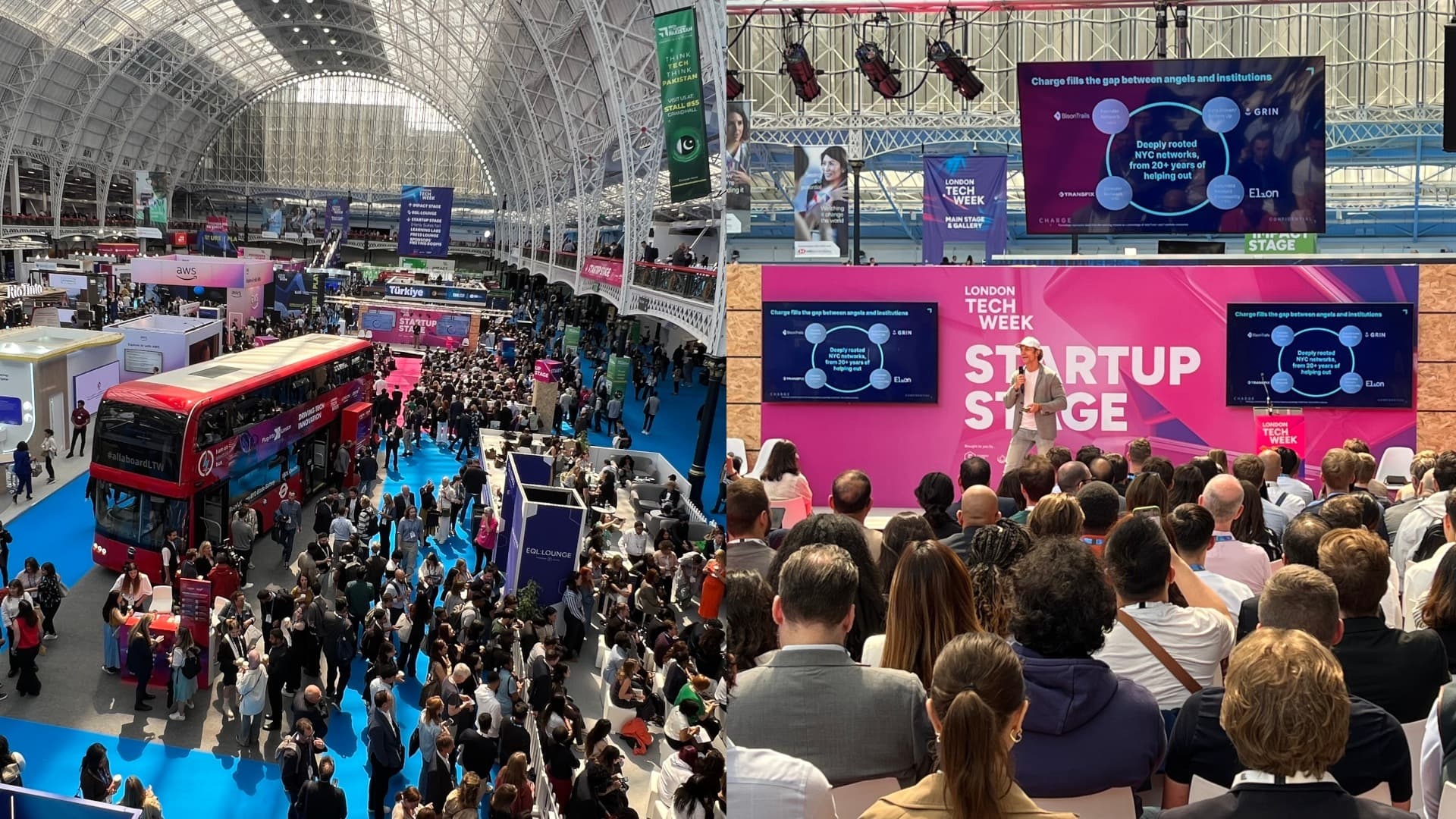
London Tech Week 2025 Unveils UK's AI Push
The opening day of London Tech Week 2025, the key note speech featured Nvidia chief Jensen Huang and Kier Starmer on the Main Stage at Olympia Events, London unveiled a major AI push at London Tech Week, unveiling a range of changes to boost Britain's AI Infrastructure & Investment in research and industrial capacity, to help the UK become an "AI maker, not an AI taker."
The main takeaways were a £1 billion government investment announced to turbo-charge UK AI compute - 20× scaling up infrastructure and aiming to reach 100,000 Nvidia-powered GPUs by 2030, while Nvidia CEO Jensen Huang revealed UK plans: an AI lab in Bristol, a Sovereign AI Industry Forum with UK firms (includes BAE SystemsBT Group , National Grid and others), plus chip-powered facilities near London and partnerships with Microsoft and Barclays Innovation Hub powered by Eagle Labs through an innovation hub in the capital, focused on AI and deep tech startups.
Skills & Inclusion announcements included PM Keir Starmer launching "TechFirst" (£187m) for AI curricula in schools and pledged training for 7.5 million workers by 2030. AI-driven ed-tech also spotlighted Peter Kyle, the UK's department of science secretary, advocated AI tutors to support dyslexic students. While the Financial Conduct Authority (FCA) with support from Nvidia through its 'inception programme' to create an AI Sandbox testing environment for financial firms.
Leading chip designer NVIDIA will partner with UCL to help optimise the UK's national artificial intelligence (AI) infrastructure, as part of a Europe-wide initiative to help countries develop their own 'sovereign' AI systems. This will include training sovereign models more quickly and cheaply, and improving their accuracy to handle the demands of next generation AI systems that can perform complex, multi-stage tasks. It will also include collaborations between academic and industry researchers, and investment in NVIDIA hardware.
UCL was confirmed as the sole UK partner of the initiative, building on its existing relationship with NVIDIA, as well as its ongoing work in creating a UK designed and trained large language model (LLM). Called BritLLM, the model has been trained not only in English but also other languages spoken in the UK, such as Welsh.
Some notable speeches & sessions included Mistral AI CEO Arthur Mensch sat down with CNBC's Arjun Kharpul to announce it's launching its first reasoning model in European languages to challenge the likes of OpenAI and China's DeepSeek AI. While Cindy Hoots of AstraZeneca unveiled an ambitious overhaul of its manufacturing and supply operations driven by deep tech, AI, and what it called a "self-healing" by betting heavily on advanced tech like digital twins, low-latency computing, and generative AI.
While the UK Government's new AI scholarship programme will see at least 100 students study at a top UK university, and gain further support and learning from leading technology firms. The Spärck AI scholarships, named after pioneering British computer scientist Karen Spärck Jones, will provide fully funded master's degrees at nine leading universities, including UCL, specialising in artificial intelligence and STEM (science, technology, engineering and mathematics).
Peter Kyle, the Secretary of State for the Department for Science, Innovation and Technology (DSIT), announced the new programme today, at the start of London Tech Week, and likened the initiative to the globally recognised Rhodes, Marshall and Fulbright scholarships.
While startups & ecosystem saw Tech Nation Rising Stars grand final winner represented by Ash Ali on behalf of Uhubs awarded over £1 million to early-stage ventures. With over 400 speakers and 30,000 attendees showcased solutions in AI, biotech, fintech, XR, robotics, deep tech and climate tech. And in addition, a new second round of Venture Capital Fellowship to boost science/tech investment expertise and attract global talent.
London Tech Week 2025 offered a powerful blend: bold government AI investment, ambitious infrastructure scaling and workforce development with the UK looking to position itself as an AI powerhouse. However, major market and capital concerns remain, including a wave of recent takeover bids by U.S. buyers (such as Spectris Plc, Alphawave IP Group, Oxford Ionics) and the UK's ability to scale domestic tech champions, citing lack of UK digital infrastructure, capital retention and global competitiveness.
(Source: LTW2025 / UCL)